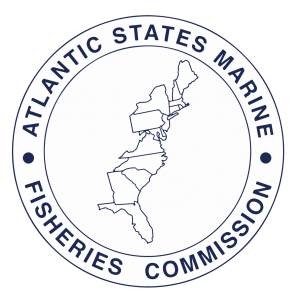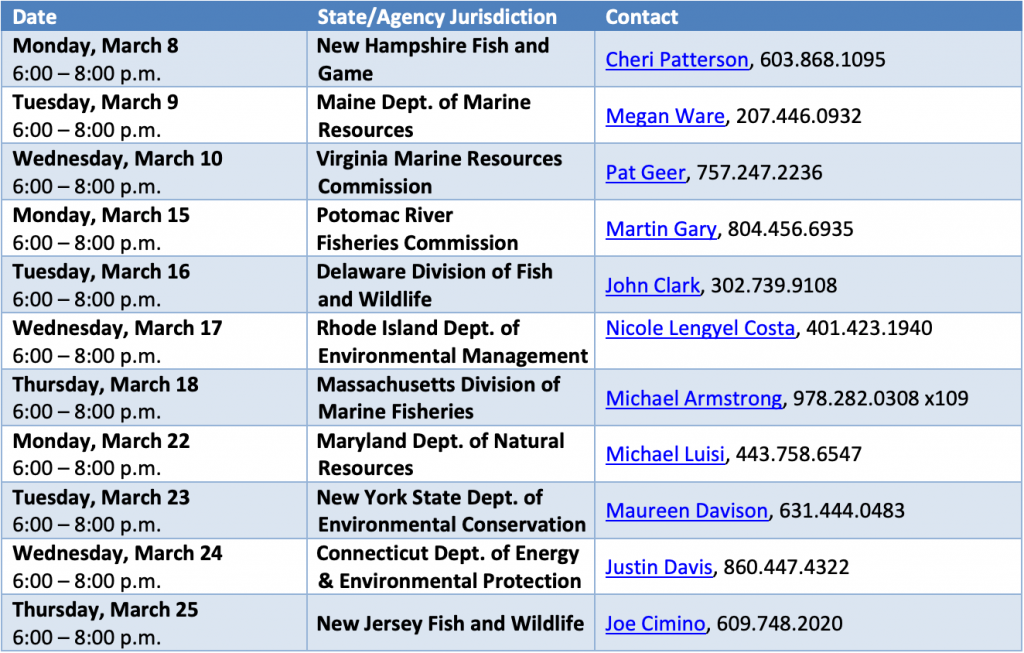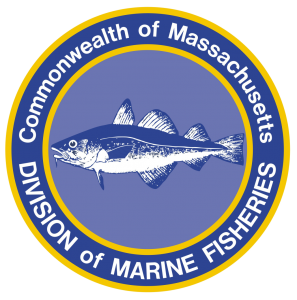ACTION ALERT- MADMF ADDING COMMERCIAL FISHING DAYS
ACTION ALERT
Oppose Plans to Increase Commercial Fishing Pressure on Striped Bass
Once again, the Massachusetts Division of Marine Fisheries (DMF) has proposed changes to the commercial striped bass fishing regulations for 2021, specifically intended to increase the harvest of breeder-sized Striped Bass.
If adopted, the changes will open the season earlier, add more days to the fishing week, and automatically add additional days—up to seven—if the quota is not on pace to be filled. Their justification is that economic hardships due to COVID-19 compel DMF to open the regulations to aid commercial fishermen.
Stripers Forever believes this policy is reckless and in direct opposition to the ASMFC’s current efforts to amend its policies to protect and restore Striped Bass to abundance. The ASMFC has declared striped bass “overfished, and overfishing is occurring,” and yet DMF wants to increase commercial fishing pressure.
The state is currently taking written public comments on this policy and will hold a virtual public hearing (link to register below) on Monday, March 29 at 6pm. We urge all members of Stripers Forever to write in opposition to this proposal and to register to attend the hearing and voice your opposition as well. Here is a link to the notice of public hearing for the draft regulation amendment.
PLEASE ACT NOW! SUBMIT YOUR COMMENTS TO THE MADMF:
The DMF is accepting written public comment on these proposals through Friday April 2, 2021.
ADDRESS ALL COMMENTS TO: Director Dan McKiernan
EMAIL: marine.fish@mass.gov
POST MAIL: 251 Causeway Street, Suite 400, Boston, MA 02114
REGISTRATION LINK FOR THE VIRTUAL PUBLIC HEARING (Monday, March 29 at 6pm): https://us02web.zoom.us/webinar/register/WN_GlH6svHUSr6CzQoc21ZkdA
MADMF NOTICE PDF: https://www.mass.gov/doc/030521-public-hearing-on-commercial-fishery-rules-affecting-striped-bass-menhaden-black-sea-0/download
ACTION ALERT- ASMFC Draft Amendment 7 PID (Public Information Document)

ACTION ALERT
ASMFC Draft Amendment 7 PID (Public Information Document)
The Atlantic States Marine Fisheries Commission (ASMFC) has produced a Public Information Document (PID) requesting comments and input from interested parties regarding the Striped Bass fishery. “This is your opportunity to inform the Commission about changes observed in the fishery, actions you feel should or should not be taken in terms of management, regulation, enforcement, and research, and any other concerns you have about the resource or the fishery, as well as the reasons for your concerns.” -ASMFC
The full PID can be found here: Draft Amendment 7 Public Information Document (PID) Public Comment Feb. 2021
The audio/video Public Hearing Presentation can be found here: https://www.youtube.com/watch?v=DdHHIifU7DI&feature=youtu.be
Registration for live hearings (all states) can be found here: https://register.gotowebinar.com/rt/8168283291056270608
Stripers Forever has studied the PID and have formulated responses to each of their areas of concern. Our comments are numbered 1 through 10, corresponding to the numbered document. What follows is a summary of our official positions on each area.
IMPORTANT NOTE: When reading these SF position statements, please compare them to your own thoughts and then, in your email to the ASMFC, formulate your own comments IN YOUR OWN WORDS. We strongly suspect that all comments received by the ASMFC that use the same language/wording get lumped together and end up counting as only one point of view from one source. Make your comments your own in order to make them count. They can be as brief or lengthy as you wish.
The items included in the PID are: 1. Fishery Goals and Objectives 2. Biological Reference Points 3. Management Triggers 4. Stock Rebuilding Targets and Schedule 5. Regional Management 6. Management Program Equivalency (Conservation Equivalency) 7. Recreational Release Mortality 8. Recreational Accountability 9. Coastal Commercial Allocation 10. Any other issues concerning the management of Atlantic striped bass.
Note that the current management regime under Amendment 6 was adopted in 2003, and failed in its objective to rebuild stocks.
Please refer to the PID for specific language on each of the following issues.
Issue 1: Goal (“To perpetuate… migratory stocks of striped bass.”) is fine.
- Objective 4 (“Foster quality and economically viable recreational, for-hire, and commercial fisheries.”): remove the commercial reference. Recreational anglers are the overwhelmingly dominant user both in terms of numbers of participants and economic impact. Managing for commercial interests runs counter to the greater public good.
- Objective 6 (“Adopt a long-term management regime that minimizes or eliminates the need to make annual changes or modifications to management measures.”): Gamefish status would solve this.
Issue 2: SF’s position is to maintain existing biological reference points (BRPs) since we know that the stock can attain those levels as it has in the past.
Issues 3 & 4: Management triggers & timeline (“Up to ten years.”): Keep what is there and follow what they say should happen. Triggers were ignored after implementation in Amendment 6 and that is at least part of why the stocks are where they are today after 18 years of a ten-year plan. For Issue 4, SF’s position is to rebuild the stocks, and maintain, sustain abundance, vs. manage for “maximum sustainable yield.”
Issue 5: Regional Management is a good idea. Chesapeake Bay is the Striped Bass’ primary nursery and should be managed differently than the coastal fishery should be different. In addition we are strongly recommending the adoption of seasonal closures in spawning locations such as the Hudson River. Striped Bass should be given the opportunity to spawn without human intervention. Closing the Hudson River, Ny Bight and Raritan Bay to Striped Bass Fishing in the spring would protect large females as they migrate from spawning grounds into their coastwide distribution. This is a no brainer and we believe it will dramatically protect and improve the spawning stock biomass. It won’t be easy though, unless you have game fish status.
Issue 6: Conservation Equivalency should be status quo, but with consequences when states adopt CE measures that fail to achieve desired outcomes.
Issue 7: Recreational Release Mortality: The circle hook requirement is fine as implemented in Addendum VI. Treble hook use on artificial lures, and proper handling should be a continuing education process.
Issue 8: Recreational Accountability: Implementing recreational harvest limits (RHLs) will be a problem until the Marine Recreational Information Program (MRIP) is supplying timely and high confidence data.
Issue 9: Coastal Commercial Quota Allocation; The simplest answer is to make it a game fish. End of story. Harvesting juvenile fish in Chesapeake Bay and larger, breeder-size females along the coast runs counter to achieving management goals.
Issue 10: Other issues: “How would you like management of the Atlantic striped bass fishery to look in the future?” Stripers Forever stands by its mission: Make it a Game Fish.
Stripers Forever remains committed to fighting for Striped Bass designation as a game fish, protected from commercial harvest. That is beyond the ASMFC’s charter, and so the following recommendations reflect what we believe to be steps that are both reasonable and aggressive, carving the surest path to rebuilding healthy, abundant Striped Bass stocks, based on the goals of the ASMFC as stated in the PID for adoption of Amendment 7.
- Moratorium (coast and bay, no recreational or commercial harvest) of 10 years’ duration to ensure the success of the ASMFC’s 10-year stock rebuilding plan.
- No targeting Striped Bass in traditional spawning areas, as determined by local authorities.
- Issue a $25 Striped Bass stamp to fund and support collection of timely, high-confidence MRIP data.
- Ban the commercial gillnet fishery (Coast and Bay); adopt hook-and-line fishing only where commercial harvest persists.
- Include a metric to account for commercial release discard mortality (including bycatch and poaching) to ensure accurate commercial impact and accountability.
- Stronger punishments for poaching (counting black market catch against commercial quota, lifetime ban from all commercial and recreational fisheries for multiple or egregious offenders, gear forfeiture, larger fines, etc.).
- Limit treble hooks to one per artificial lure.
- Require barbs on artificial lures be flattened when used for striped bass.
You have an opportunity to influence the overall management of our Striped Bass right now. We all need to join forces and submit comments to the ASMFC that state loudly and clearly that the health of the Atlantic Striped Bass stock – not harvest – should be the highest priority of Amendment 7. Stripers Forever has a singular mission to put the fish first – let’s all do our part to communicate this same message to the ASMFC and to your state’s ASMFC reps to the Atlantic Striped Bass Management Plan.
For full information and a schedule of state-by-state public hearings on the Atlantic Striped Bass Draft Amendment 7 PID in March – please see the ASMFC’s NEWS RELEASE.
Registration for live hearings below can be found here: https://register.gotowebinar.com/rt/8168283291056270608


Public comments are being accepted through 5pm, April 9, 2021 and can be emailed to comments@asmfc.org (Subject line: Striped Bass PID). Also consider sending comments directly to your state’s commissioners to the Atlantic Striped Bass Management Plan.
Please also copy your state’s delegation on any comments to the ASMFC. Here is link to state board and advisory commission members.
Thank you!
ADDITIONAL LINKS
- Atlantic Striped Bass Board- February 3, 2021 Meeting Audio/Video (YouTube)
- Atlantic Striped Bass Board- February 3, 2021 Meeting (Collected Slides PDF- No Audio)
- Atlantic Striped Bass Board- Main Meeting Materials
- Atlantic Striped Bass Board- Supplemental Meeting Materials 1
- Atlantic Striped Bass Board- Supplemental Meeting Materials 2
- Atlantic Striped Bass Board- PID Public Comment News Release
- Atlantic Striped Bass Board- Draft Amendment 7 Public Information Document (PID) Public Comment Feb. 2021
ASMFC 2021 WINTER MEETING SUMMARY & ACTION



ATLANTIC STRIPED BASS MANAGEMENT BOARD MEETING SUMMARY
The ASMFC’s winter meeting took place last week and the Atlantic Striped Bass Management Board convened and there are some important takeaways for those of us interested in the health of the fishery. Below you will find a summary of the results of the meeting and, based on these developments, some suggestions for how we can keep fighting to influence better policy.
At the bottom of this summary you will find links to the meeting documents as well as the YouTube link to view the meeting recording. If you missed the meeting we encourage you to take a look.
Recreational Release Mortality Still a Matter of Debate
The meeting opened with a presentation of stock assessments based on alternative recreational release mortality data. In short, when best-case and worst-case scenario data were used to calculate the effect on Striped Bass, the results were just about the same as they are believed to be today—which is not good. But the presentation revealed several important deficiencies: fisheries managers regard a fish released properly the same as one subject to the abuse common to those caught and released from a party boat (angler behavior), high-temperature/low-oxygen conditions and size/age of the fish. It’s unclear how usable or valuable this data is without taking those criteria into consideration. There’s nothing much we can do about it except collectively practice good catch-and-release techniques.
Stock Assessment Delayed
The technical committee voted to delay updating the Striped Bass stock assessment that had been scheduled for this year. Because of the new regulations and effects of the pandemic, the assessment was delayed until 2022 with the hope that the data will be better. There is also a “two stock” model for evaluating both ocean and Chesapeake Bay stock health that may be used in the 2022 assessment if it passes peer review.
Circle Hook Exemption Debated
There was a lengthy debate over a proposal by Massachusetts and Maine to exempt “tube and worm” rigs from the circle hook mandate for bait fishing. The two states want two years to study whether tube and worm rigs, which are popular with the for-hire fishery, result in deep-hooking of fish. Most agreed that, because tube & worm rigs are fished actively—trolled or retrieved—the danger of deep hooking was minimal, but some expressed concerns that the exemption would be used as a loophole.
This debate took almost 2 1/2 hours and led to almost 100 public attendees leaving the meeting, likely out of pure frustration. Much like conservation equivalency, as soon as 1 or 2 states asked for the exemption the rest followed suit. No doubt this was a massive waste of time for both the board and the public. This study could have been conducted in 1 state as the results could be applied to the entire fishery, there is no need to make this into a coastwide ‘study’.
Ultimately the exemption passed and now we are faced with the possibility of loophole, compliance and enforcement issues. Not to mention making already complex regulations more confusing to the public. We will continue to follow this issue and update when necessary.
Public Input Encouraged for Upcoming Management Changes
The most consequential item discussed during the meeting concerned adoption of a “public information document” (PID) to be issued in advance of work on Amendment 7 to the Striped Bass management plan. A PID is issued to help inform the public prior to the solicitation of input for the drafting of a new management plan. That PID has since been issued (link below), and soon the ASMFC will schedule public hearings and ask for suggestions that will help shape the future of striped bass fisheries management along the Atlantic coast.
Stripers Forever is reviewing the PID and will make recommendations for how we can be an important part of that discussion and make sure the recreational fishing community is heard on this matter. It will be vital that we speak in one clear voice when the time comes. We welcome your input and ideas during this time, please email us at stripers@stripersforever.org.
It was clear during the meeting that there are still those intent on putting pressure on the Commission to increase the commercial harvest, arguing that the stocks are fine and recent cuts are due to miscalculations. John Clark, fishery manager from Delaware, claimed that there were so many striped bass in Delaware Bay they were emaciated because of a lack of forage. Because people like John are relentless in their efforts, we all must be as well.
Speak Loudly and Be Heard
We know that conservation-minded, recreational anglers constitute an overwhelming majority of the striped bass fishing public. We know we can be a powerful voice for protecting these valuable fish for the future. We will do what we can to have our collective voice of conservation heard and heeded.
Stay tuned. We will keep you all informed through email, social media, and our website. Thanks for your participation in the conservation of Striped Bass…Make it a Game Fish!
LINKS
- Atlantic Striped Bass Board- February 3, 2021 Meeting Audio/Video (YouTube)
- Atlantic Striped Bass Board- February 3, 2021 Meeting (Collected Slides PDF- No Audio)
- Atlantic Striped Bass Board- Main Meeting Materials
- Atlantic Striped Bass Board- Supplemental Meeting Materials 1
- Atlantic Striped Bass Board- Supplemental Meeting Materials 2
- Atlantic Striped Bass Board- PID Public Comment News Release
- Atlantic Striped Bass Board- Draft Amendment 7 Public Information Document (PID) Public Comment Feb. 021
IMMEDIATE ACTION REQUEST- MADMF COMMERCIAL SEASON EXTENSION
On August 10 the Massachusetts Division of Marine Fisheries (DMF) issued an advisory of a proposed in-season adjustment to the commercial striped bass fishing regulations for 2020 that would open up a third day to commercial fishing. It offered justification that because of COVID-19 and the likelihood that Mass would, for the third year in a row, fail to catch its striped bass quota, the move would provide some financial relief to commercial fishermen.
The advisory included a 14-day period for public comment, but DMF reneged on that promise and decided after only 10 days to adopt the proposal, increasing fishing pressure on breeder-sized female striped bass.
You spoke out in numbers during that abbreviated window and we know many of you planned to send your notes in opposition during the last weekend. You were not only ignored, but you were denied your voice on this important issue.
We think you deserve to be heard. That is why we sent the following letter to Gov. Baker, Lt. Gov. Polito, Sec. Theoharides, and Dir. McKiernan asking for an explanation, an accounting, and a reversal on the decision.
We’ve sent a copy of the letter (below) to local and angling media and now we are asking for you to also let the Commonwealth know that you are not happy with this decision, and that you are not happy with the process leading up to it.
Please send a copy of the letter and a brief, personal note to Governor Baker and Director McKiernan letting them know how you feel. Be polite. Keep it clean. But make it clear you believe the decision to increase commercial fishing pressure on breeding-size female striped bass was a mistake.
The policy is scheduled to go into effect September 1, so PLEASE ACT NOW to make sure they get the message.
Thank you!
EMAILS SHOULD BE SENT TO THE FOLLOWING ADDRESSES:
Dear Governor Baker:
On August 10, 2020, the Massachusetts Division of Marine Fisheries issued an advisory entitled, DMF Proposing In-Season Adjustments to the 2020 Commercial Fishing Limits for Certain Quota Managed Species. Among the proposals was opening additional days to the commercial striped bass season. Justification for the proposal was “with consideration of market impacts resulting from the COVID-19 pandemic” and to “provide active commercial fishermen with additional access to these quota managed fisheries during the fall.”
The advisory stated that “DMF will be accepting public comment on these proposals through 12PM on Monday, August 24, 2020.”
On Friday, August 21, DMF issued a follow-up advisory entitled, DMF to Make In-Season Adjustments to 2020 Commercial Striped Bass, Black Sea Bass and Summer Flounder Limits. That advisory stated that “the Marine Fisheries Advisory Commission (MFAC) approved several recommendations made by the Division of Marine Fisheries (DMF) to make in-season adjustments to 2020 commercial fishing limits for striped bass, black sea bass, and summer flounder. This action was taken four days before the end of public comment with no indication as to whether the public was for or against the proposals and in what numbers.
Furthermore, the justification for adding a third open day for commercial striped bass fishing was that, “This action also accommodates commercial fishermen who seek to conduct their fishing activity over consecutive days to take advantage of night fishing opportunities that may otherwise be limited by having non-consecutive open fishing days.”
In 2019 the Atlantic States Marine Fisheries Commission (AMFC) found that the Atlantic striped bass population was in trouble. Stocks have been in decline for some time, as has spawning success. The ASMFC declared that striped bass were “overfished, and overfishing is occurring.” The Massachusetts delegation to the ASMFC annual meeting was among the more vocal groups advocating for the most aggressive harvest reductions as public support for strong conservation measures was overwhelming. As a result, regulations were changed coastwide to reduce both recreational and commercial harvest.
An indication of the dire situation was the fact that Massachusetts had failed to meet its quota in either 2018 or 2019. There were simply not enough fish available to the commercial fleet. Despite a reduction in the commercial quota, it appears that Massachusetts will fall short again in 2020.
Stripers Forever would like to know why DMF rushed to make their decision while the period of public comment was still open and how, when public support for harvest reductions and conservation was overwhelming less than a year ago, their decision seems to indicate that support has vanished. Our members made it clear to us that they were opposed to the proposal, and we even heard from individuals who have traditionally opposed our efforts to end all commercial fishing for striped bass that the proposal was illogical and that they, too, would speak out in opposition.
If DMF believes striped bass are “overfished, and overfishing is occurring,” increasing fishing pressure on the already beleaguered population at this time makes no sense. The 35″ minimum size limit for commercially harvested striped bass all but ensures every striped bass caught for market in Massachusetts is a breeder-sized female—the very fish on which the future of the species depends.
Incidentally, the justification to allow fishermen targeting striped bass on overnight trips to land and sell their fish the morning after their catch makes no sense. A commercial fisherman who wants to fish at night and sell their catch in the morning could strike out, begin fishing at midnight, and return to dock in the morning after filling their limit. There is no advantage to fishing earlier since there is a daily limit on fish; one day’s catch is all that could be sold.
If it is economics the Commonwealth is concerned about, it is worth noting that studies have shown the recreational value of a robust striped bass fishery to be over one billion dollars to Massachusetts’ coastal communities, whereas the commercial fishery generates only a few million dollars in economic activity.
Stripers Forever and our 2,000+ Massachusetts members would like to know why DMF denied the public four days of its stated public comment period and would like to know what percentage of comments received by August 20 were in support of or opposed to the in-season changes to the commercial striped bass regulations.
We believe the decision was wrong. We believe the process was not proper. And we are disappointed that the decision undermines our potential leadership position on striped bass management. Stripers Forever urges Director McKiernan to provide these answers, to provide an accounting of public comment, and to reverse this decision in the best interest of the fishery.
Regards,
Dean L. Clark, MA State Co-Chair, Stripers Forever
Frederic B. Jennings Jr., Ph.D., MA State Co-Chair, Stripers Forever








